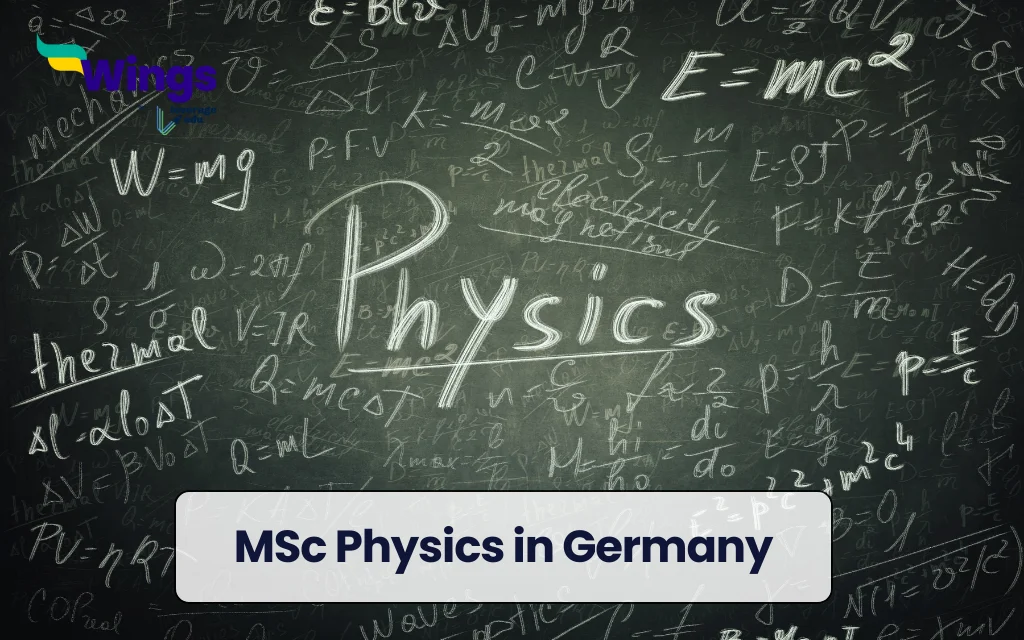92 Master’s Degrees in Physics in Germany
Introduction
Germany is a premier destination for students pursuing a Master’s degree in Physics, offering world-class education, cutting-edge research facilities, and diverse specializations. With 92 Master’s programs available across top-ranked universities, students can choose from theoretical physics, astrophysics, quantum engineering, and more. This guide provides an in-depth look at the best Physics Master’s programs in Germany, eligibility criteria, and career prospects for graduates.

Why Study a Master’s in Physics in Germany?
Germany’s higher education system is renowned for its academic excellence, affordability (many public universities charge low or no tuition fees), and strong industry connections. The country is home to leading research institutions like the Max Planck Society and DESY, making it an ideal place for aspiring physicists.
Key benefits include:
- High-ranking universities (Technical University of Munich, Heidelberg University, RWTH Aachen)
- English-taught programs for international students.
- Strong job prospects in academia, engineering, and tech industries.
Top Universities Offering Master’s Degrees in Physics
Germany boasts numerous universities ranked among the best globally for Physics. Here are some of the top institutions:
1. Technical University of Munich (TUM)
- Ranking: Europe,globally
- Programs: MSc in Physics, Quantum Science & Technology.
- Key Features: Strong industry collaborations, research-focused curriculum.
2. Heidelberg University
- Ranking: Europe,globally
- Programs: MSc in Physics, Astrophysics.
- Key Features: Historic university with cutting-edge research in particle physics.
3. Karlsruhe Institute of Technology (KIT)
- Ranking:Europe,globally
- Programs: MSc in Physics, Optics & Photonics.
- Key Features: Strong emphasis on applied physics and engineering.
4. RWTH Aachen University
- Ranking:Europe, globally
- Programs: MSc in Physics, Condensed Matter Physics.
- Key Features: Close ties with industrial research centers.
5. University of Munich (LMU)
- Ranking: Europe,globally
- Programs: MSc in Physics, Theoretical & Computational Physics.
- Key Features: Interdisciplinary research opportunities.
(For a full list of 92 programs, refer to DAAD or university websites.)
Specializations in Physics Master’s Programs
German universities offer a wide range of specializations, including:
- Theoretical & Mathematical Physics (e.g., University of Bonn).
- Quantum Engineering & Nanotechnology (e.g., Ulm University)
- Astrophysics & Space Sciences (e.g., University of Hamburg).
- Biophysics & Medical Physics (e.g., Heidelberg University).
- Condensed Matter Physics (e.g., RWTH Aachen).

Admission Requirements for Physics Master’s in Germany
While requirements vary, most programs expect:
- A Bachelor’s degree in Physics or related field (minimum GPA may apply).
- Proof of English proficiency (IELTS 6.5+ or TOEFL 90+). Some programs require German (e.g., TestDaF).
- GRE scores (for some competitive programs).
- Motivation letter & academic references.
Career Prospects After a Physics Master’s in Germany
Graduates can pursue careers in:
- Research & Academia (PhD positions, Max Planck Institutes).
- Industry (Siemens, Bosch, aerospace sectors).
- Tech & Data Science (quantum computing, AI).
- Government & Policy (energy, environmental physics).
External Resources for Further Research
- DAAD (German Academic Exchange Service): www.daad.de
- University Rankings (Physics): edurank.org
- QS World University Rankings (Physics & Astronomy): www.topuniversities.com

Conclusion
With 92 Master’s degrees in Physics available, Germany stands as a top choice for students seeking advanced education in this field. Whether you’re interested in quantum physics, astrophysics, or applied research, German universities provide exceptional opportunities. Start your application today and join a thriving academic community!
General Keywords:
- Study Physics in Germany
- Best Physics Universities in Germany
- Physics Master’s Programs in Germany
- Germany Physics Degree
- Physics Scholarships in Germany
Specialization-Related Keywords:
- Quantum Physics Master’s Germany
- Astrophysics Master’s Germany
- Theoretical Physics Programs Germany
- Condensed Matter Physics Germany
- Biophysics Master’s Degree Germany
Admission & Career Keywords:
- Physics Master’s Admission Requirements Germany
- How to Apply for Physics Master’s in Germany
- Physics Jobs in Germany for Graduates
- PhD after Physics Master’s in Germany
- Salary for Physicists in Germany
University-Specific Keywords:
- TUM Physics Master’s Program
- Heidelberg University Astrophysics
- RWTH Aachen Condensed Matter Physics
- LMU Munich Theoretical Physics
- KIT Applied Physics Master’s
Financial & Visa Keywords:
- Tuition Fees for Physics Master’s in Germany
- Scholarships for International Physics Students
- Student Visa for Germany (Physics Students)
- Cost of Living for Students in Germany
Research & Industry Keywords:
- Max Planck Institutes for Physics
- DESY Research Opportunities
- Fraunhofer Society Physics Careers
- Physics Internships in Germany
Long-Tail Keywords (for better ranking):
- “Which German university is best for a Master’s in Physics?”
- “Fully funded Physics Master’s programs in Germany”
- “Physics Master’s in Germany for international students”
- “English-taught Physics Master’s programs in Germany”
- “Job opportunities after Physics Master’s in Germany”
How to Use These Keywords:
- Include them naturally in headings, subheadings, and body text.
- Use variations to avoid keyword stuffing.
- Add them to meta descriptions and image alt texts if applicable.

